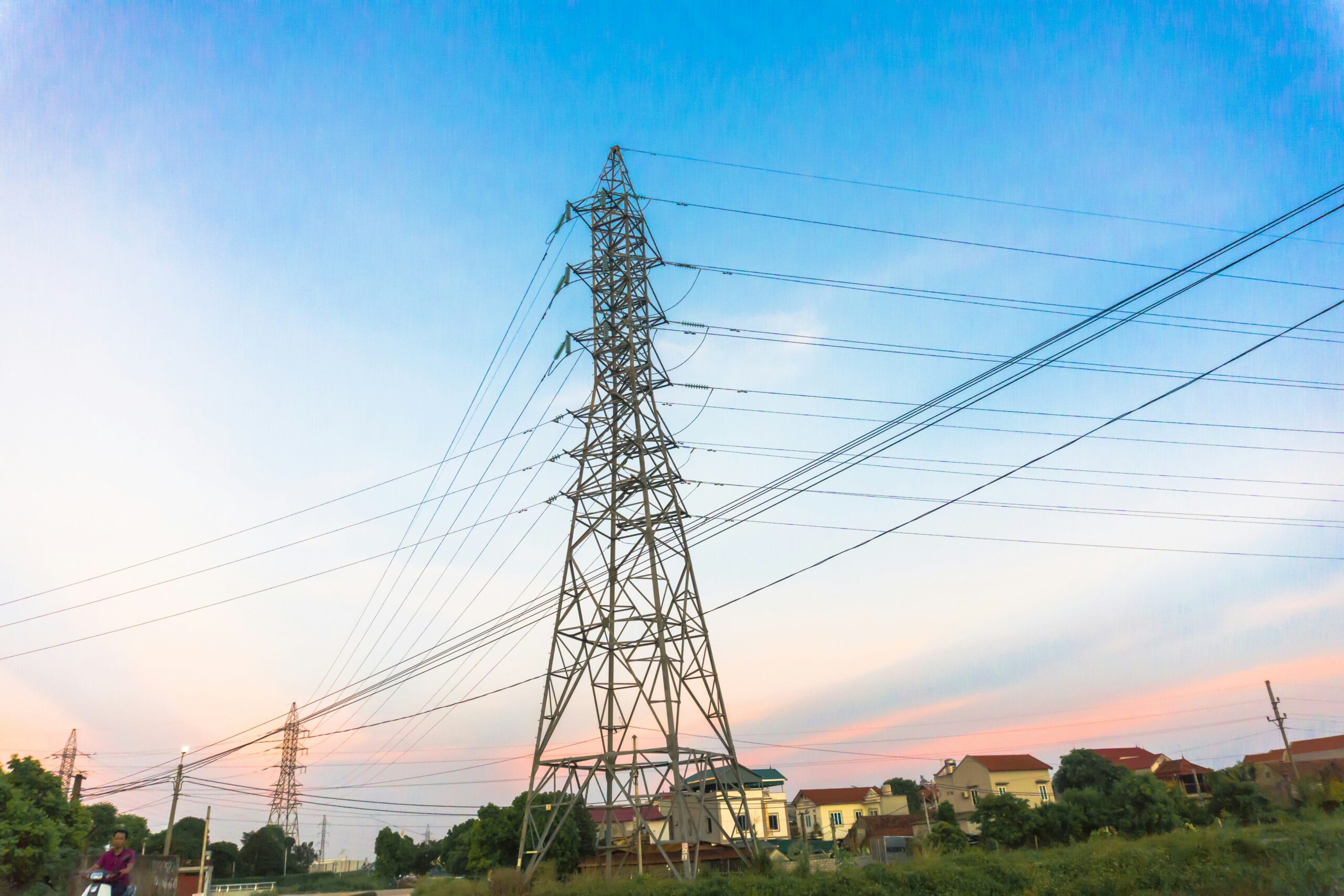
Blog
Convening Southeast Legislators Around Regional Transmission and Energy Policy: Building the Grid of the Future
September 17, 2024
On September 12-14, legislators from North Carolina, South Carolina, and Georgia convened in Charleston, South Carolina, to discuss regional transmission goals and how to build the grid of the future. The convening brought together a bipartisan group of 20 legislators and 3 legislative staffers.
Legislators first gathered at Ritual Rooftop Restaurant and Lounge for a happy hour opening reception.
Day One
The event started with a Utility 101 panel on the background of utility regulation and structure in the Southeast. Speakers Damali Harding (Regulatory Assistance Project), John Szoka (Conservative Energy Network), and Taylor Allred (South Carolina Coastal Conservation League) discussed the history of the power grid in the region and the benefits and downsides of the grid’s design.
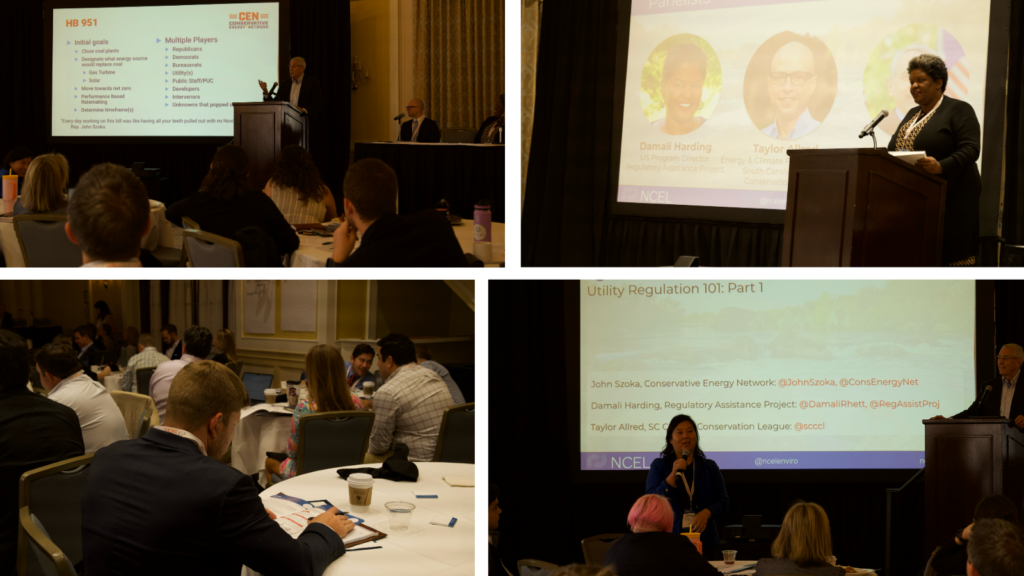
Legislators also walked through NCEL’s Transmission, Utility, and Southern Climate Solutions Briefing Books to learn more about real-life opportunities for implementing utility regulation and promoting grid development.
The next session, a continuation of Utility 101, highlighted innovative state policies in regional utility regulation. Panelists Hamilton Davis (energyRE), Eddy Moore, (Southern Alliance for Clean Energy), Anne Blair (Electrification Coalition), and Former Commissioner Dan Clodfelter (North Carolina Utilities Commission) highlighted policies including net metering, competitive competitive procurement, consumer protection, and electric vehicles and utilities.
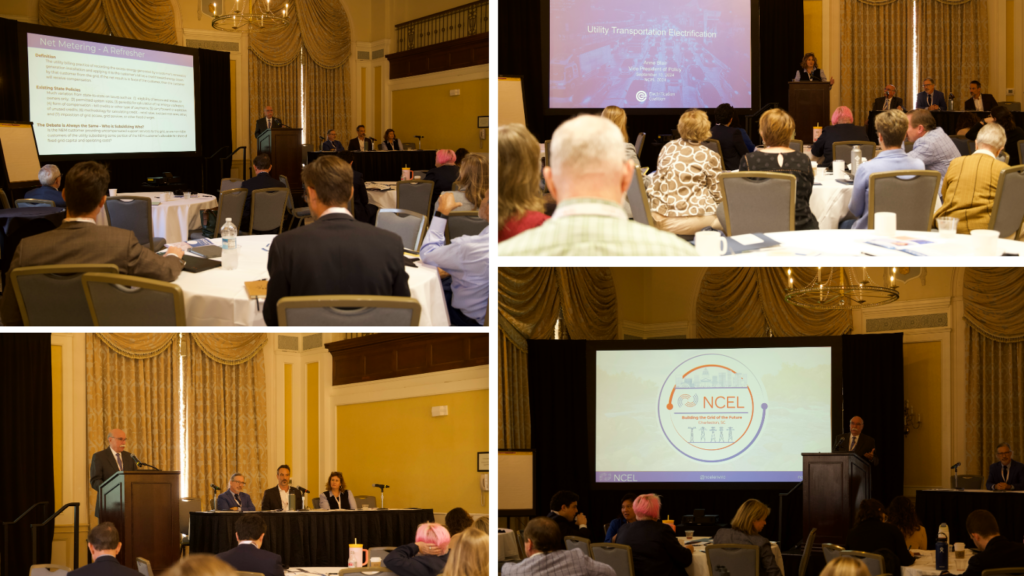
Lunchtime featured a keynote address from Former Arkansas Public Service Commissioner Ted Thomas illuminating what the grid of the future needs to look like to support the needs of today.
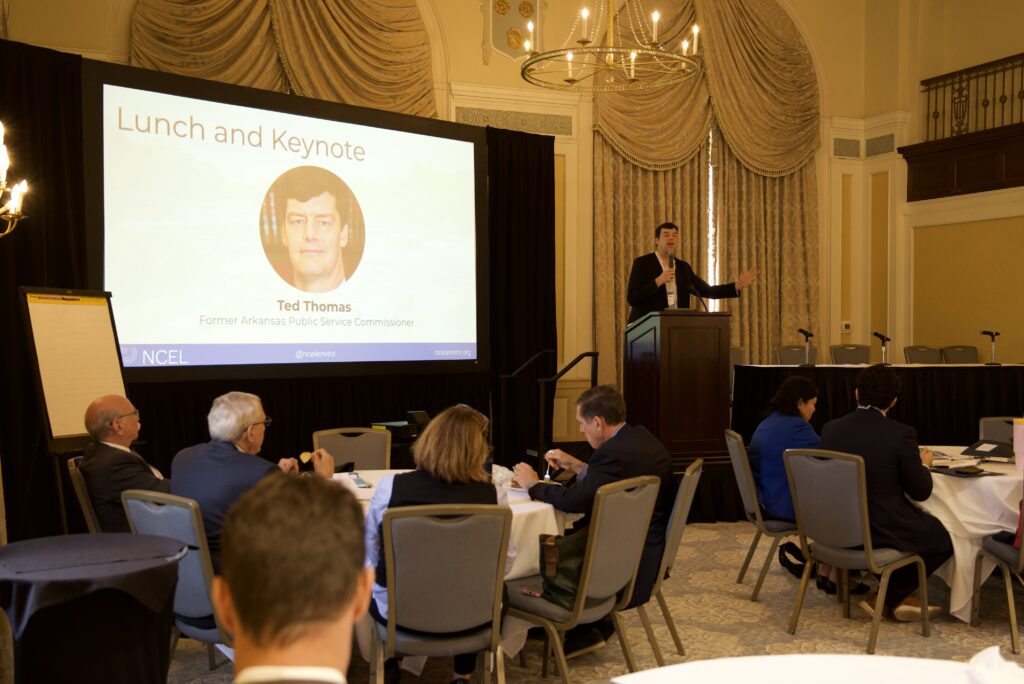
Former Commissioner Ted Thomas
The third session of day one inspected the state of the grid and transmission in the Southeast. Panelists Nick Guidi (Southern Environmental Law Center), Maggie Shober (Southern Alliance for Clean Energy), and Rob Gramlich (Grid Strategies) broke down how the grid functions, why the Southeast grid is unique, and the progress of each state to date.
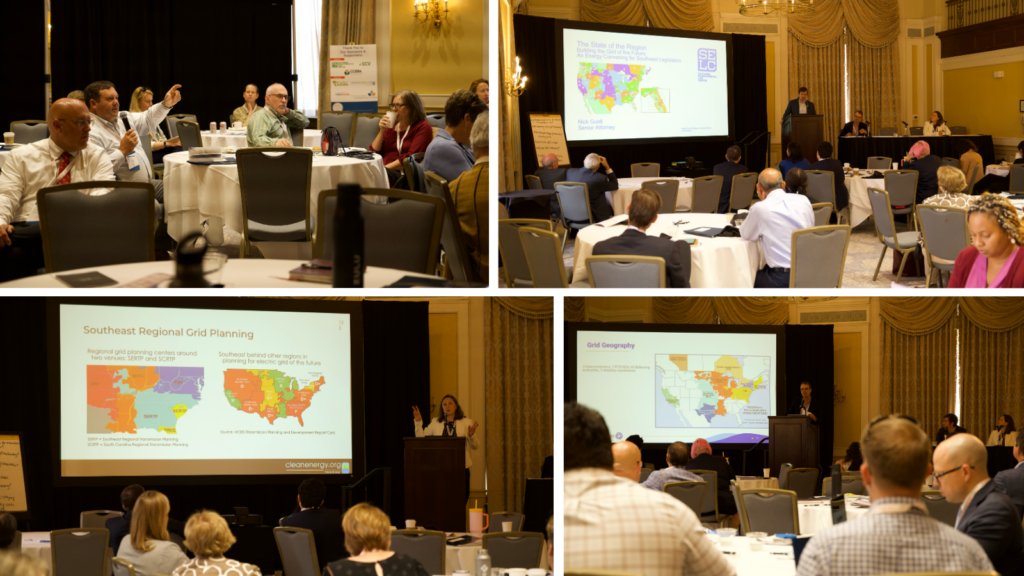
Our final panel of the day continued the discussion on the state of the grid in the Southeast with a spotlight on successful grid regulation policies. South Carolina Senator Tom Davis, Judsen Bruzgul (ICF), Katie Southworth (Clean Energy Buyers Association), Steve Letendre (Fermata Energy), and Amy Pickle (Educational Foundation of America) highlighted policies including vehicle to grid technology, transmission planning, grid resilience, and electric market design.
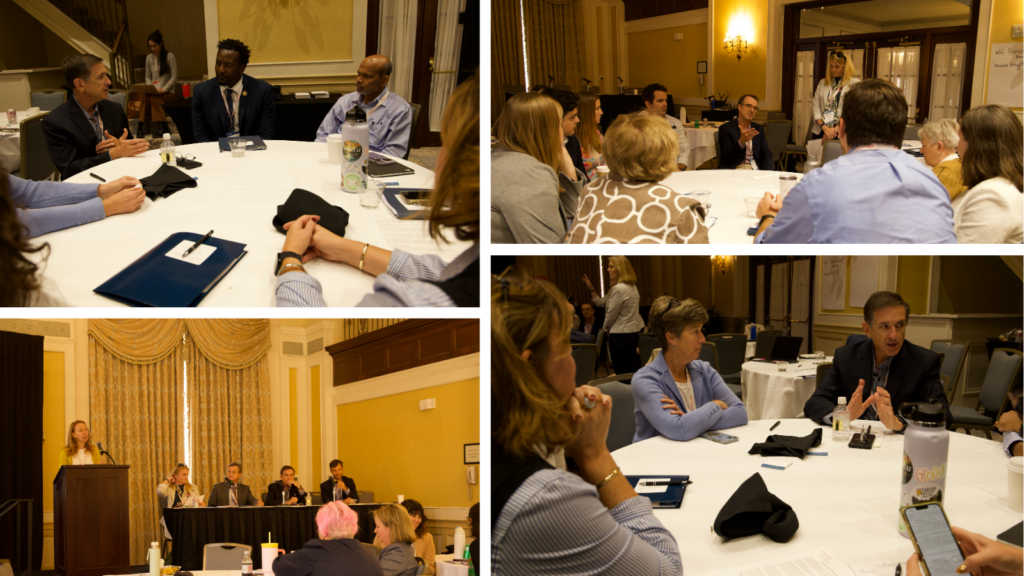
Day One closed out with a dinner reception at the South Carolina Aquarium and a discussion on the business case for clean energy – featuring speakers from the Carolinas Clean Energy Business Association, Treaty Oak Clean Energy, energyRe, and Fox Rothschild.
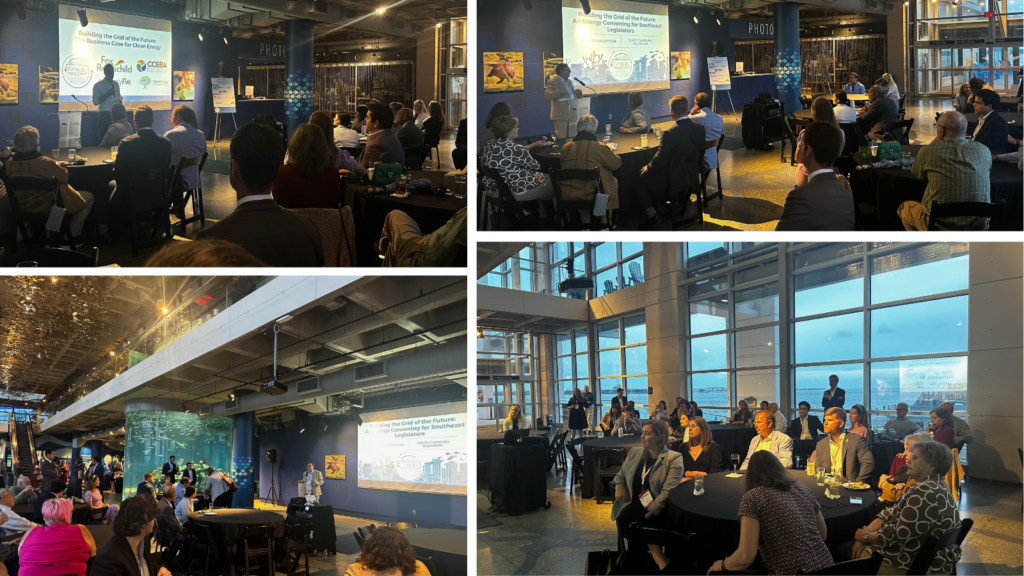
Day Two
The final day of our convening hosted a tour of Duke Energy eGRID and Wind Turbine Drivetrain Testing Facility at Clemson University’s Dominion Energy Innovation Center. Legislators explored the facility’s advanced wind-turbine drivetrain testing facility–capable of full-scale, highly accelerated mechanical and electrical testing of wind turbine systems.
After the tour, legislators heard from Dominion Energy Innovation Center Staff on their facilities and research as well as its implications for state innovation and legislation. Attendees also had the opportunity to collaborate with fellow state leaders on action-oriented next steps.
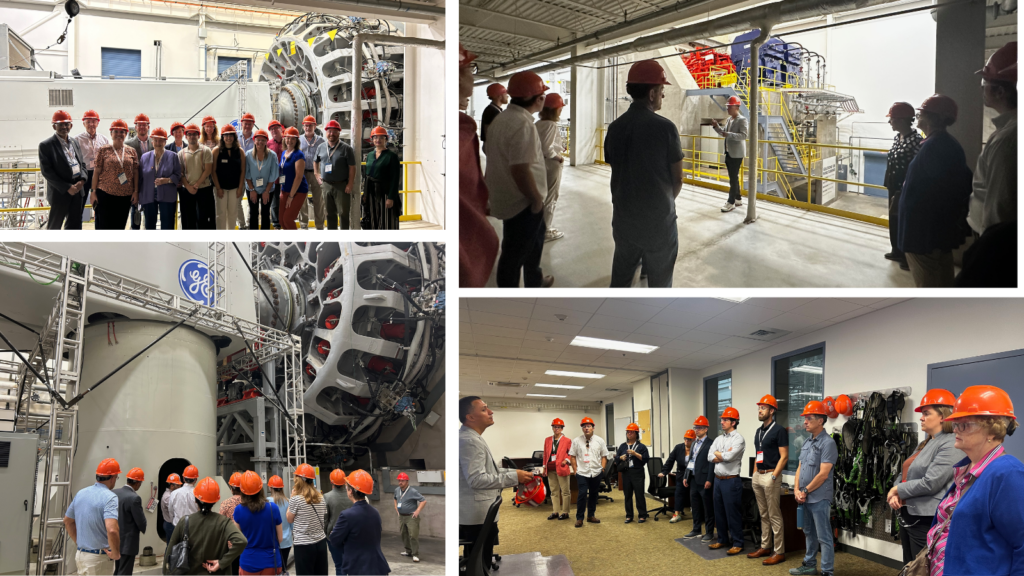
Looking Ahead
Attendees of the event walked away with more knowledge and expertise on implementing utility and grid policy in the 2025 legislative session. As a wave of transmission development moves across the country, state leaders are increasingly tasked with addressing grid affordability, reliability, resiliency, and security issues.
This event was in partnership with the Southern Environmental Law Center (SELC), and NCEL hopes to continue collaborating to promote interstate cooperation on these important issues, especially as regional cooperation becomes more paramount.
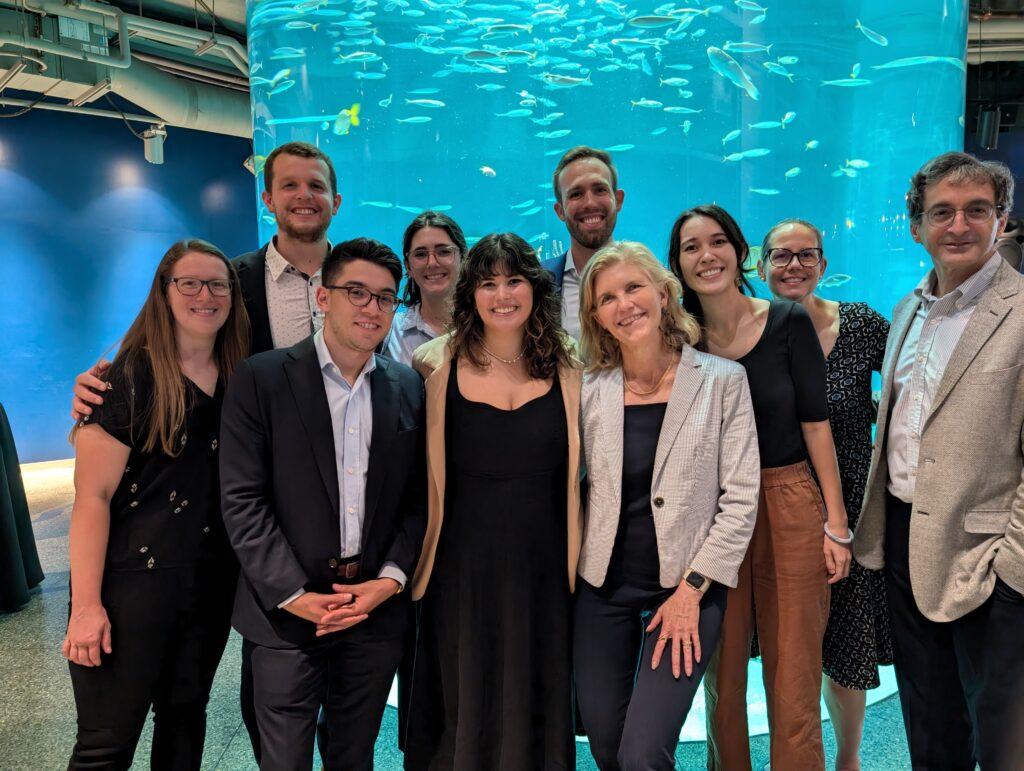
NCEL and Southern Environmental Law Center (SELC) Staff
Keep up with utility and grid policies through NCEL’s Utilities and the Grid Issue Page.